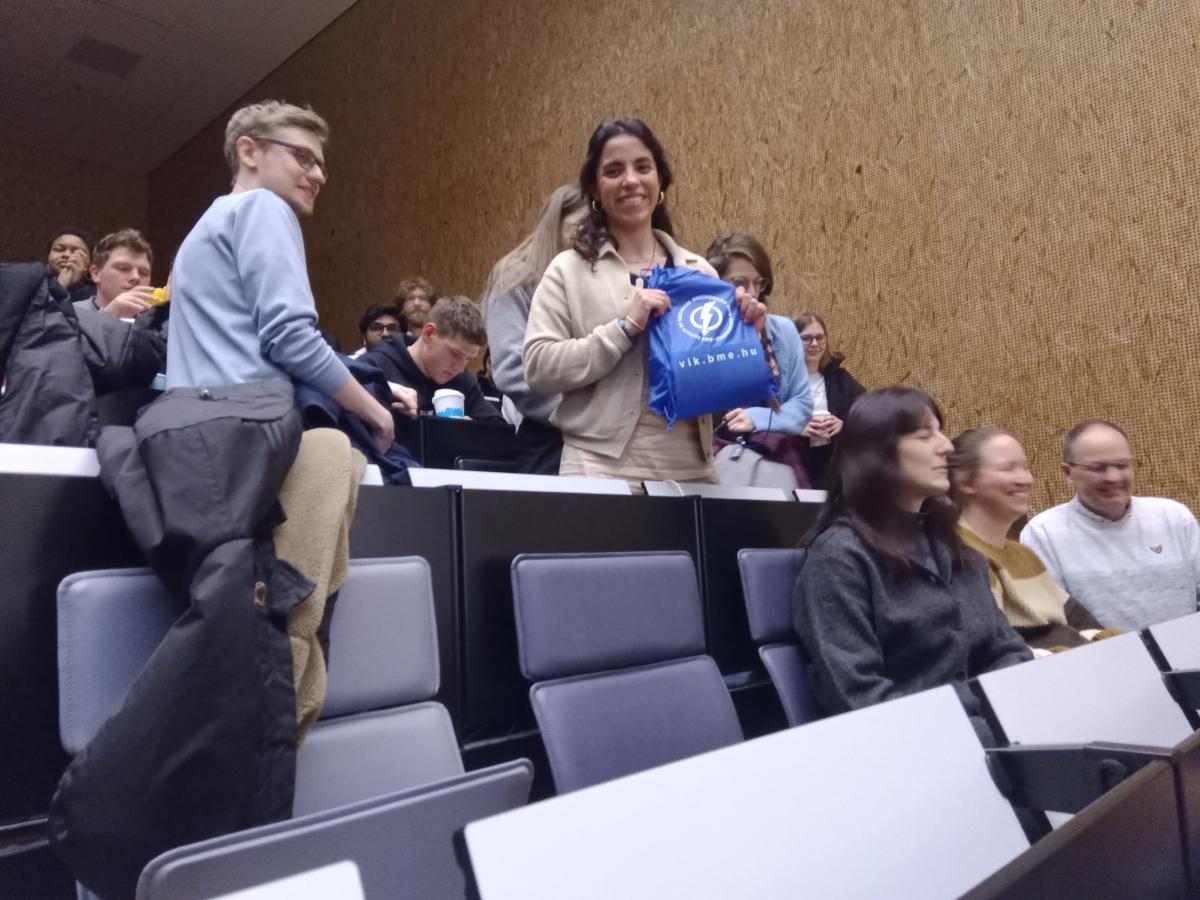2025. March 04.
Human-Centred AI – Not Just for IT Students!
68 Students from Four Universities at the Utrecht HCAIM BIP
The Blended Intensive Program (BIP) on Human-Centred Artificial Intelligence was held for the third time from late November 2024 to the end of January 2025. The program was organized by Utrecht University of Applied Sciences in collaboration with three other European universities, research institutes, and companies. Students developed research proposals to advance AI technologies and AI applications across various disciplines, with a strong emphasis on human-centricity.
Human-Centred AI (HCAI) aims to ensure that human aspects—such as legal and ethical issues such as fairness, bias mitigation, explainability, transparency, compliance with regulations, etc.—are integrated throughout the entire process of technological design and implementation. The HCAIM project (2021–early 2024) developed curricula for IT students that prioritized human aspects in AI. As its continuation, the PANORAIMA project, launched in early 2025, aims to develop further educational materials on the human-centred application of AI, this time not only for IT students, and also for adult education. The 2024/25 BIP already reflected this new approach.
68 Students from Four Universities, 15-15 Lecturers and Researchers
The on-site part of the HCAIM BIP, held from January 27–31, 2025, brought together 68 students from four universities, and 15-15 lecturers and researchers from universities, research institutes, and companies, including 27 students and seven lecturers from Budapest University of Technology and Economics (BME). Among the BME participants, 18 students were from the Faculty of Electrical Engineering and Informatics (VIK), including 14 computer and two space engineers, one healthcare and one electrical engineer. The Faculty of Mechanical Engineering (GPK) was represented by five students (three mechatronics and two mechanical design engineers), while the Faculty of Architecture (ÉPK) and the Faculty of Economic and Social Sciences (GTK) each sent two students, and the Faculty of Natural Sciences (TTK) had one representative—making for a diverse group!
Additionally, three Stipendium Hungaricum (SH) scholarship students participated: one from Mexico, one from Tunisia, and one from Vietnam. Among the lecturers, four came from VIK and three from GTK. The participation of BME students in the HCAIM BIP is gradually becoming a university-wide initiative...
Virtual and On-Site Training
In the virtual phase of the training, students received information about research topics proposed by universities, research institutes, and companies. With the option of consultation, they selected a topic to focus on in the following weeks—often as part of their thesis project.
The on-site, five-day session was highly intensive (see programme). In the first few days, participants attended several lectures, including one on the challenges of collaboration between people with different cultural backgrounds and ways to bridge these differences, which sparked great interest. There were two methodology lectures: one on the role and preparation of pitches and posters, and another on how to develop research proposals. In his lecture, Mihály Héder emphasized the importance of ethical considerations in AI-related research proposals and theses. Additionally, three alumni, including Márk Dániel Szalai from BME, shared their experiences with thesis writing.
Most of the students' time was dedicated to their chosen research topics: they searched for literature online, prepared short presentations (pitches), discussed their ideas with topic mentors, faculty members, and fellow students, and then created posters. These posters were displayed and presented on the final day. The completed posters can be viewed on the HCAIM website, along with event photos in the online photo album.

Networking, Social Events, and the Closing Ceremony
Beyond academic work, participants had opportunities to socialize and build connections—not just during coffee and lunch breaks, but also at three evening dinners: Monday’s event was for both students and lecturers, Tuesday’s was student-only, and Wednesday’s was lecturers-only. On Thursday afternoon, participants explored some of Utrecht’s landmarks through a city walk combined with a quiz.
The closing event on Friday followed the poster presentations. After reflecting on the past week, various awards were presented. The Best Poster Award was shared by three students, including Sarai Gonzalez y Gonzalez, an SH scholarship recipient and MSc student in computer engineering at BME.[1]
This week also marked the kickoff meeting of the PANORAIMA project, attended by around 50 participants from eight partner countries. The organization of BIPs will be continued also in the new project in order to prepare students for the design and development of human-centred AI applications.
Péter Hanák
BME VIK
[1]Best Poster Award for showing the impact, originality and quality of the work, as well as the overall report structure, clarity, conciseness and robustness.

